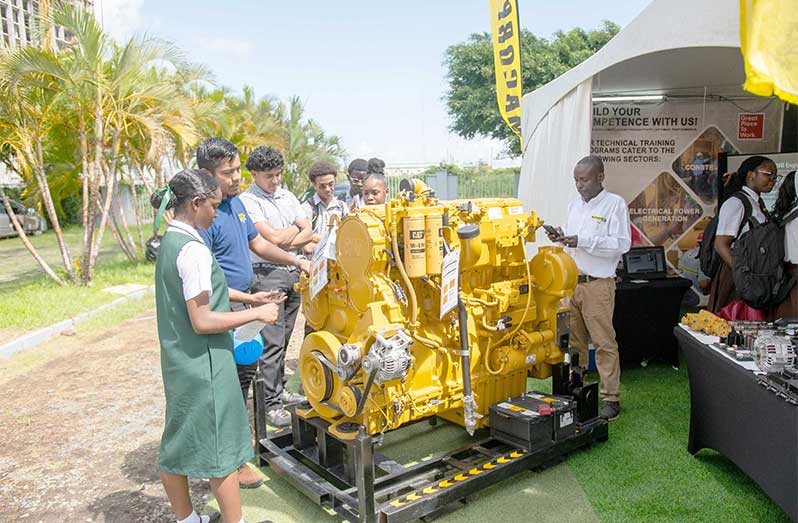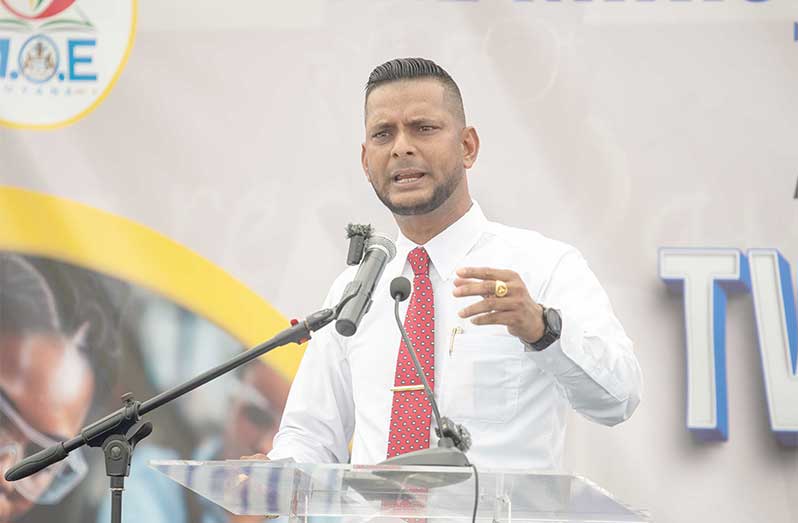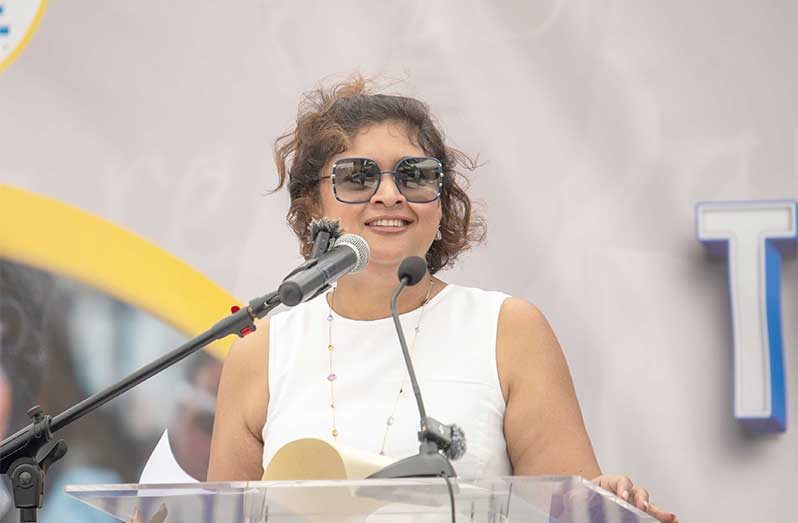-vocational education seen as a “strategic pillar” for national development
THE Ministry of Education officially opened its historic Technical and Vocational Education and Training (TVET) Exposition and Fair on Tuesday, under the theme, “Empowering Youths, Elevating Skills: TVET as a Catalyst for Inclusion.”
Hosted at the Arthur Chung Conference Centre, the event brings together students, educators, industry stakeholders, and the public to explore the government’s massive investment in skills training and to witness firsthand the transformation and work being done at technical and vocational institutes and schools across Guyana.

Delivering the keynote address, Minister of Education Priya Manickchand underscored the ministry’s commitment to strengthening the TVET sector and ensuring nationwide access to technical education.
She reflected on the early days of her term, noting that in 2019, only nine secondary schools offered four Caribbean Vocational Qualification (CVQ) subjects. “Today, because of conscious investment, planning, getting on the ground, putting the facilities in place, we have 74 secondary schools across Guyana offering 24 CVQ subjects,” she shared.
She highlighted that when she took office, there were no TVET training centres in Regions One, Five, Seven and Nine. That has since changed.
“Today, because of conscious investment, because of strategic partnerships, we have state-of-the-art TVET facilities in nine of the 10 regions in Guyana.”
These include the recently commissioned Practical Instruction Centres (PICs) at Mabaruma, Hopetown, Beterverwagting, and Fellowship in Region Three, with upcoming commissionings in St. Ignatius and Bartica.
The minister also emphasised the practical direction of the TVET push. She pointed out that work is already underway to seamlessly integrate and emphasise subjects like agricultural science nationwide. “By the end of next term, every single secondary school will have a shade house, be able to produce their own agricultural products that could be grown under a shade house. Of our 117 high schools only 54 are left to be done, and we are working on those as we speak.”
She further explained that initiatives like these are part of the government’s larger plans to develop growing sectors by prioritising them at the base level, beginning in schools. “We want our children to be competent in what they are going to pursue. We want them to competitively engage in the various new arising sectors that are coming out of the oil and gas industry. We want them to earn, we want them to lead, we want you to be able to take up your rightful place.”
CROSSROADS OF TRANSFORMATION
Also addressing the crowd of attendees, Deputy Chief Education Officer (Technical), Ritesh Tularam, said the fair is a symbol of how far TVET has come. “Today we stand at the crossroads of transformation as Guyana experiences rapid growth in various sectors, from oil and gas to agriculture, construction, technology, and renewable energy.”
He added that, “Vocational education and training is no longer a secondary pathway, or it’s no longer an alternative pathway, but rather it is a strategic pillar in shaping a prosperous, inclusive, and resilient Guyana.”
Tularam highlighted the importance of the country’s first-ever TVET policy, which provides guidance to the ministry and all other stakeholders.

“I encourage all of us to visit the ministry’s webpage, visit the ministry’s website, and have access to that document so you can understand your roles and your responsibilities as it relates to the transformation the education sector is making regarding technical education.”
Highlighting other notable strides Tularam said, “Every single region in this beautiful country of ours, we have a TVET centre that is established to provide skills training for every single student within that space, within that sphere. If you go to Northwest, which is Region Number One, students, residents, parents, single mothers, girls, they can all have access to quality, relevance, and equity in the delivery of technical education. And so we have state-of-the-art tools and equipment. Our teachers are trained to deliver the curriculum.”
He also spoke about expanding access through digital platforms, highlighting the digital platform being created by the Ministry of Education to teach, assess, and certify people in vocational and technical subjects nationwide.
“First time in the history of this country, with the leadership of the Minister of Education, we are now moving to digitise technical and vocational education and training.”
He explained further, “What does that mean? It means that persons from Berbice, persons from Region One, persons from deep riverain communities in Region Number Eight don’t have to spend the time to come to Georgetown or go to Essequibo to acquire a skill. This is a platform that will enable every single individual to get online and complete a CVQ programme.”
As the fair officially opened, Tularam called on attendees to embrace the opportunity. “I want for us to understand that this exposition is a celebration of what our young people can achieve when they are given the tools, training, and support to succeed.”
Speaking to the students and participants of the expo, he added, “To our students and trainees, you are the builders of this new Guyana. The skills you gain today will fuel the progress of tomorrow.”



.jpg)








